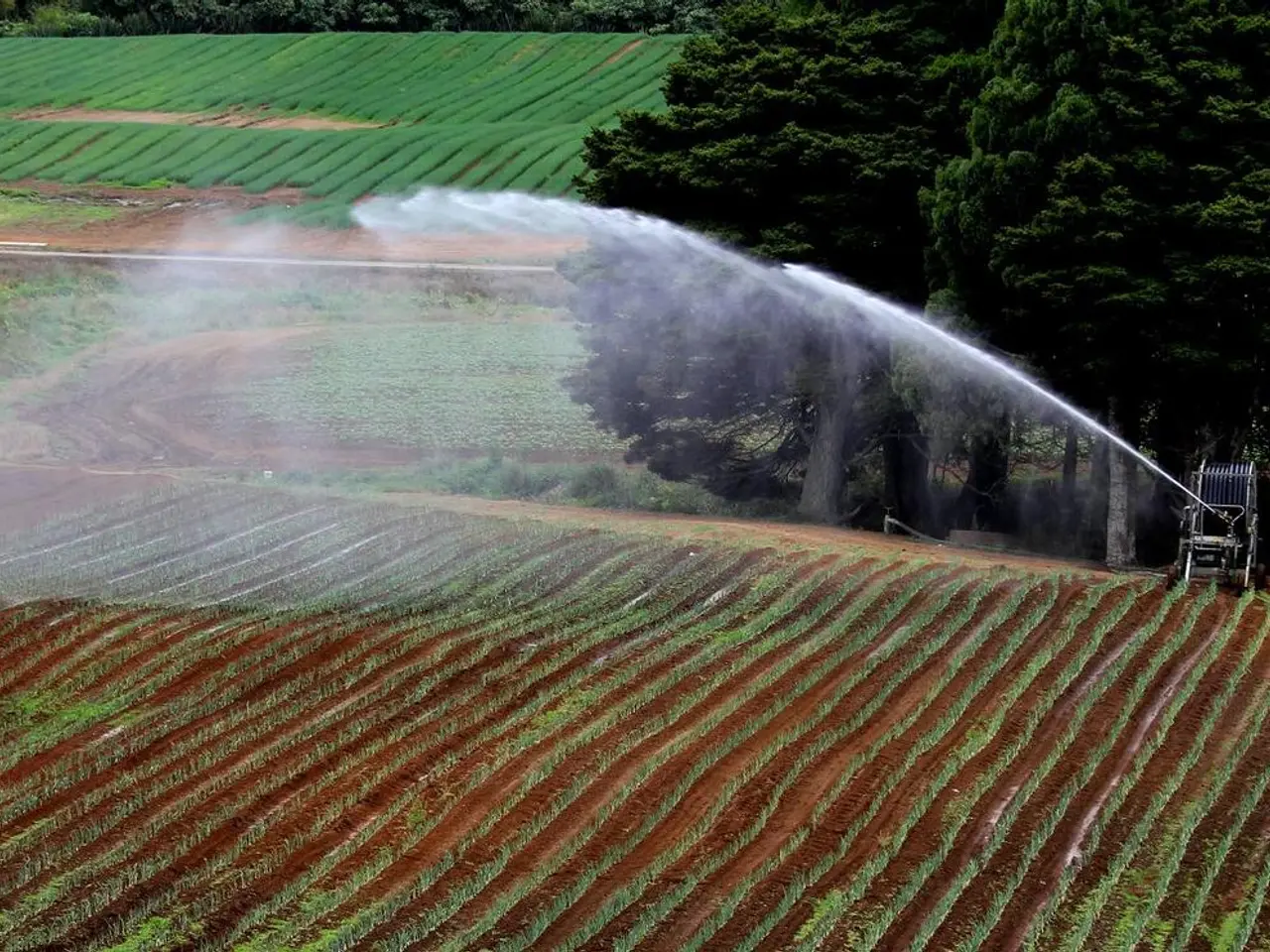Big Business Thrives in Biotechnology Sphere
In a world grappling with global issues such as climate change, antibiotic resistance, and feeding an ever-growing population, biotechnology is stepping forward as a beacon of hope. This technology, based on biology, harnesses cellular and biomolecular processes to develop products and systems that benefit humankind.
Across various industries, biotechnology is making significant strides, transforming the way we approach medical treatments, agriculture, plastic processes, textiles, and chemical manufacturing.
**Medical Industry**
Personalized medicine and gene editing, particularly in oncology and rare diseases, are witnessing a surge, thanks to advancements in technologies like CRISPR. Biologics are also gaining traction due to their targeted solutions, with AI reducing development time and costs in drug discovery. Regenerative therapies, such as tissue engineering, are capturing a significant market share, offering new possibilities for treatments.
**Agri-Tech Industry**
Biotechnology in agriculture is evolving with precision techniques, utilising genetic engineering to enhance crop yields and resilience. There is a growing focus on sustainable agricultural practices, including the use of biotech for improving soil health and reducing environmental impact.
**Plastic Processes Industry**
Biotechnology is increasingly used to produce bioplastics and biodegradable materials, offering more sustainable alternatives to traditional plastics derived from fossil fuels. Microbial degradation of plastics is also being explored, which could significantly reduce plastic waste by breaking down plastics more efficiently.
**Textiles Industry**
In textile production, biotechnology is applied to create sustainable fabrics, such as those derived from biomass or utilizing enzymes for environmentally friendly dyeing processes. Biotech innovations are also being used to develop functional textiles with advanced properties, such as self-cleaning or temperature-regulating fabrics.
**Chemical Industry**
The chemical industry is being transformed by biotechnology, enabling the production of bio-based chemicals from renewable resources, reducing dependence on fossil fuels. Enzyme-catalyzed processes are becoming more prevalent, offering more efficient and environmentally friendly manufacturing processes.
**Future Prospects**
The future of biotechnology involves increased investment and collaboration between companies, governments, and research institutions to drive innovation. Continued advancements in AI and gene editing technologies are expected to play a crucial role in the growth and diversification of biotech applications. There is a growing emphasis on sustainability, with biotechnology being leveraged to develop more environmentally friendly processes and products across various sectors.
Companies like Gene & Green TK, Canadian Biolyse Pharma Corp, Algalife, PILI, Iceni Diagnostics, Carbios, Biotalys, and many others are spearheading this biotech revolution, developing groundbreaking technologies that promise a sustainable and healthier future. Whether it's inhibiting bacterial virulence, extracting cancer drugs from yew trees, degrading chemical warfare nerve agents, or creating sustainable textile fibers, the potential applications of biotechnology are vast and exciting.
The global market for biotechnology is expected to reach a staggering US$2.44 trillion by 2028, growing at a Compound annual growth rate (CAGR) of 15.83%. As we move forward, it's clear that biotechnology will continue to play a central role in various fields, driving innovation and finding solutions to the world's most pressing challenges.
- In the realm of medical-conditions and health-and-wellness, biotech is revolutionizing personalized medicine and gene editing for oncology and rare diseases, utilizing technology such as CRISPR, while biologics and AI are reducing drug discovery costs and development time.
- Regenerative therapies, including tissue engineering, are making significant inroads in the medical field, offering new treatment possibilities.
- In environmental-science and sustainability, biotech is being applied to produce biodegradable materials in the manufacturing of bioplastics, as well as to explore microbial degradation of plastics.
- In the realm of science and textiles, biotech is being used to create sustainable fabrics and improve environmentally friendly dyeing processes, as well as to develop functional textiles with superior properties.
- The chemical industry is transforming with biotech, enabling the production of bio-based chemicals from renewable resources and using enzyme-catalyzed processes for more efficient and eco-friendly manufacturing.




